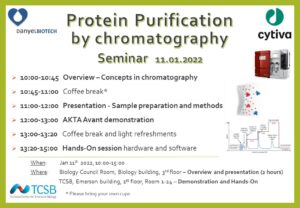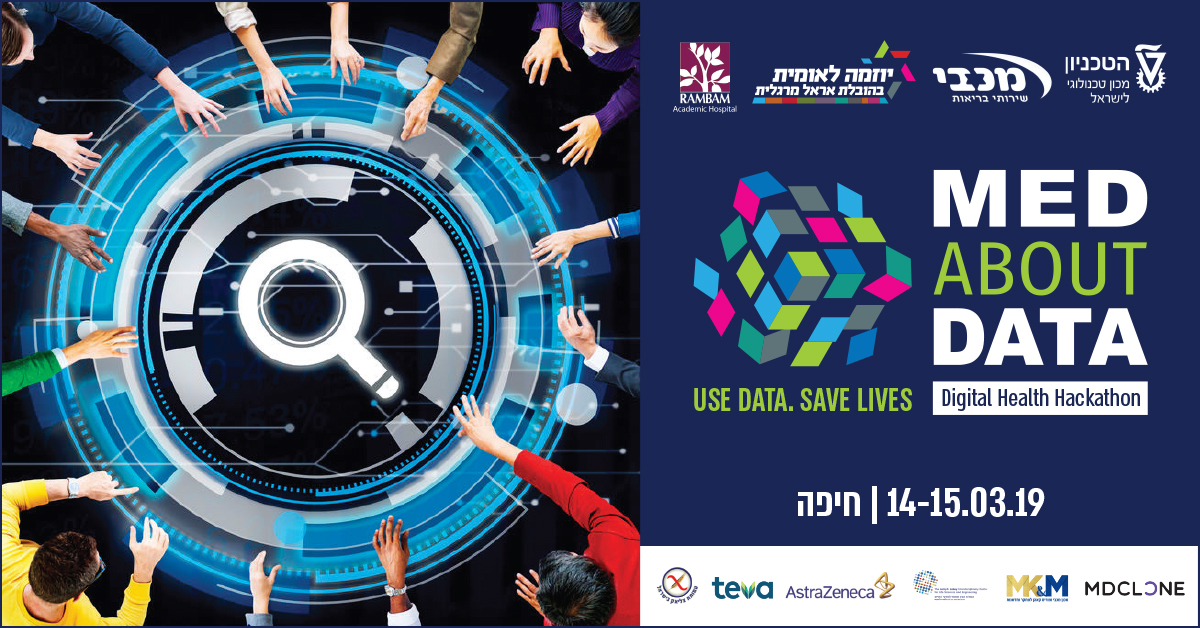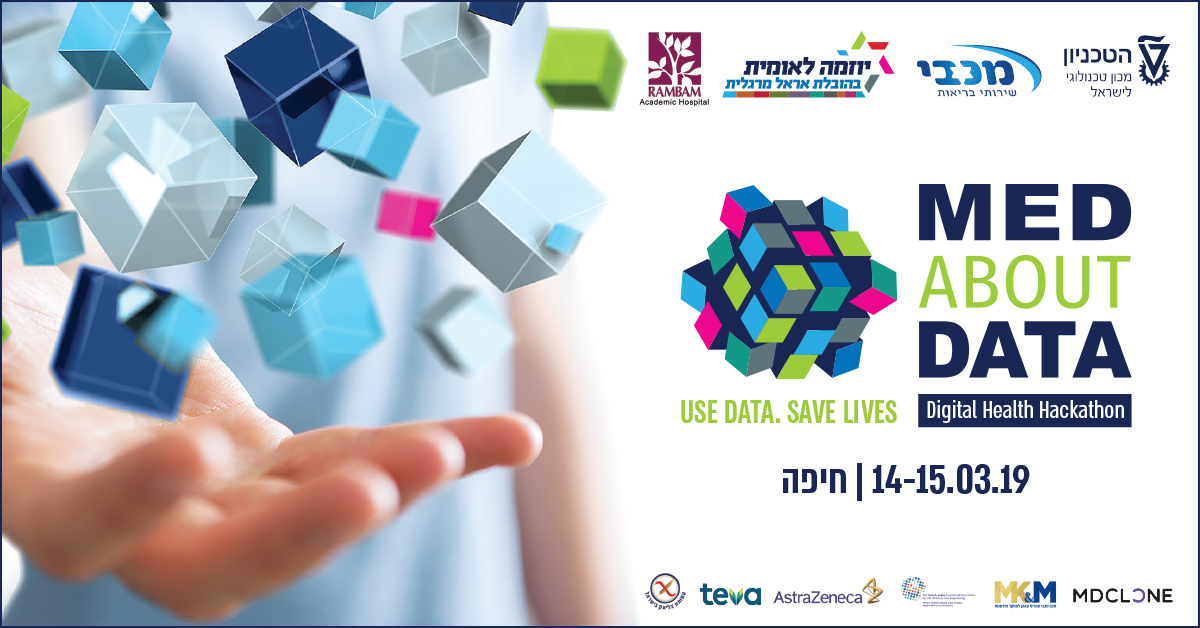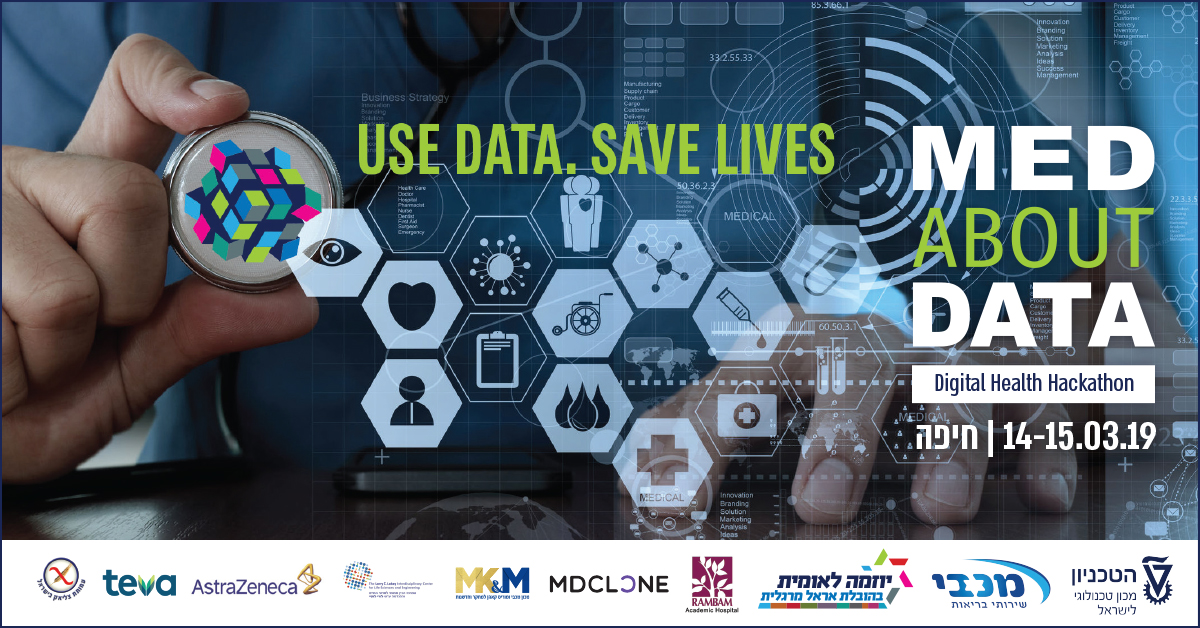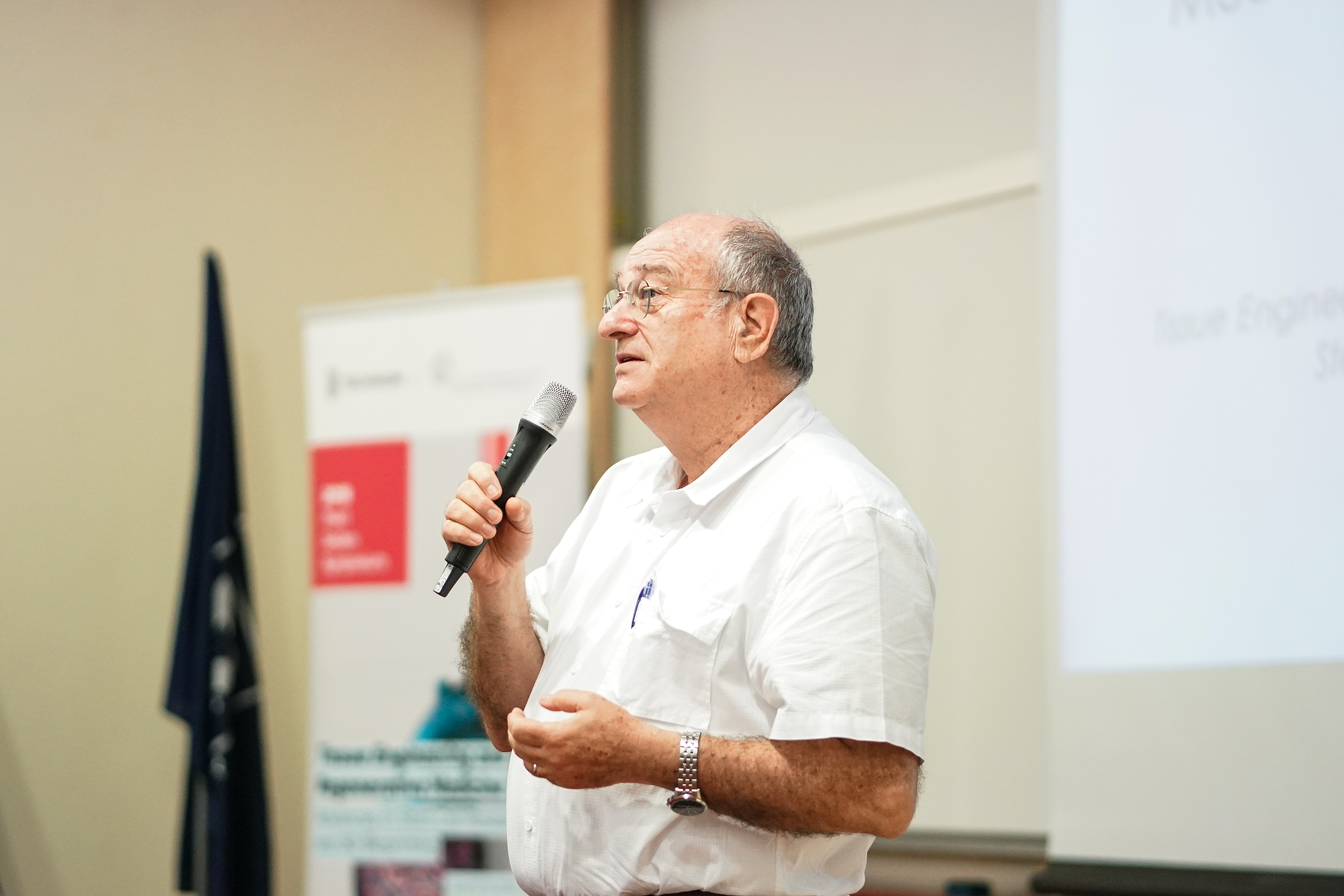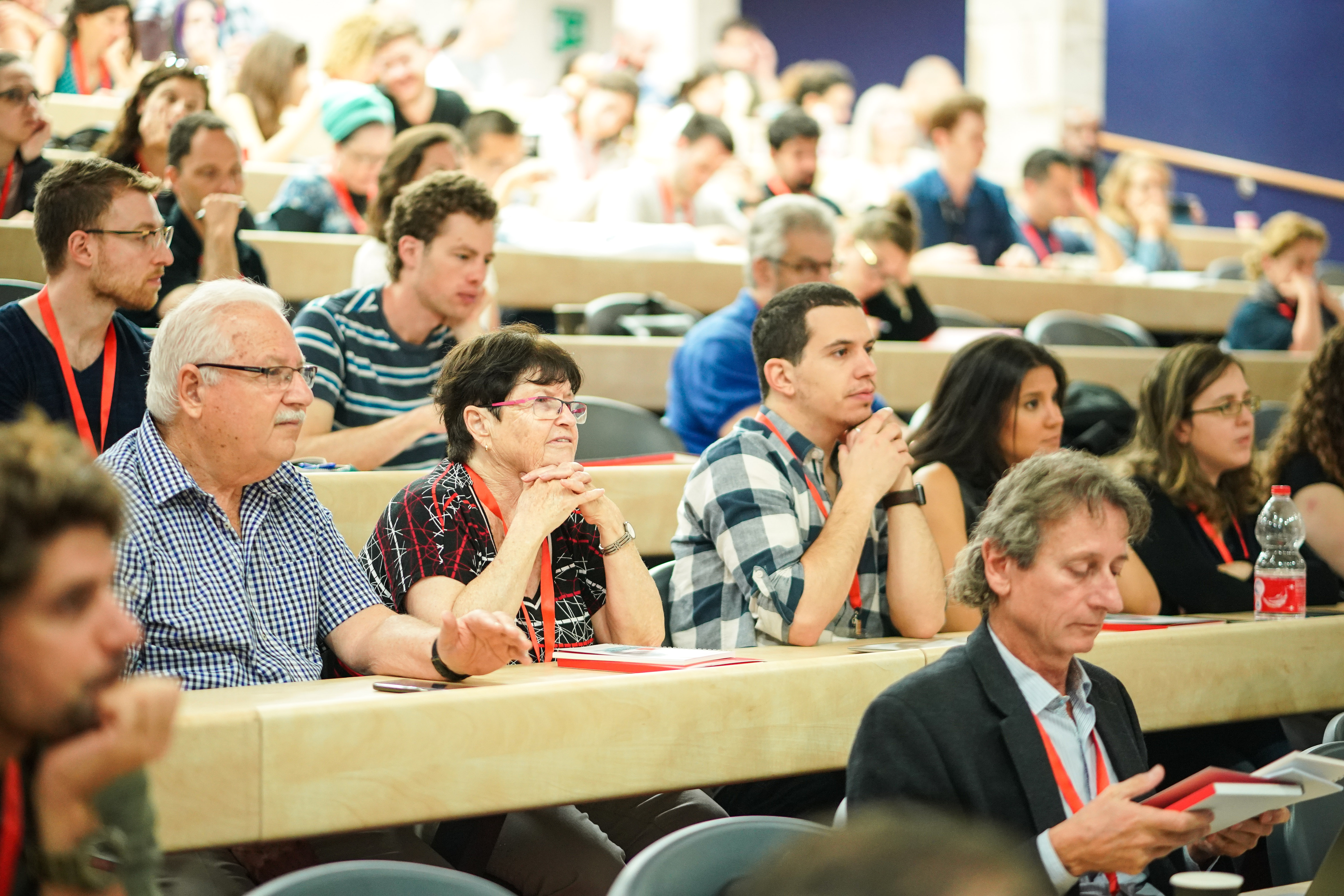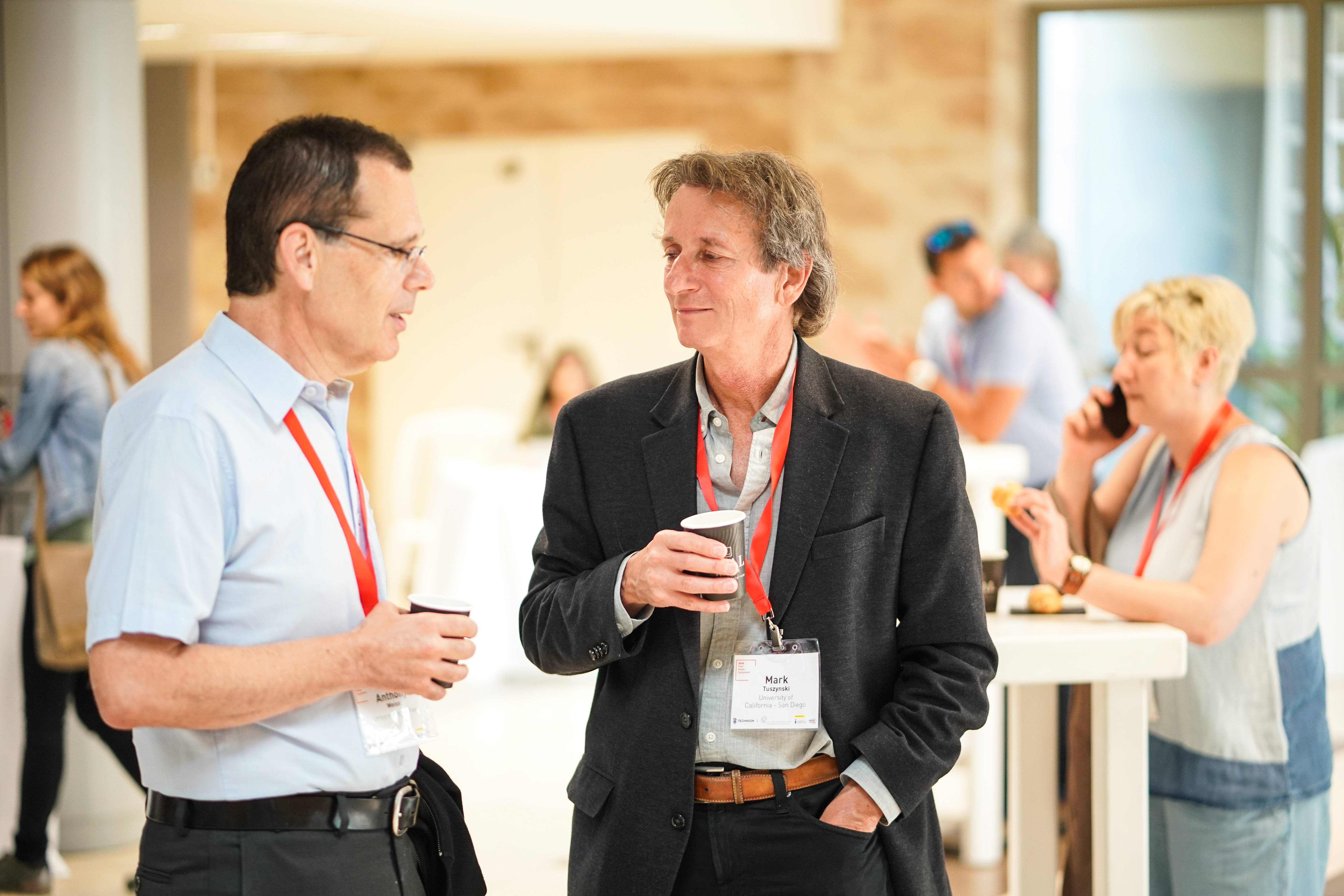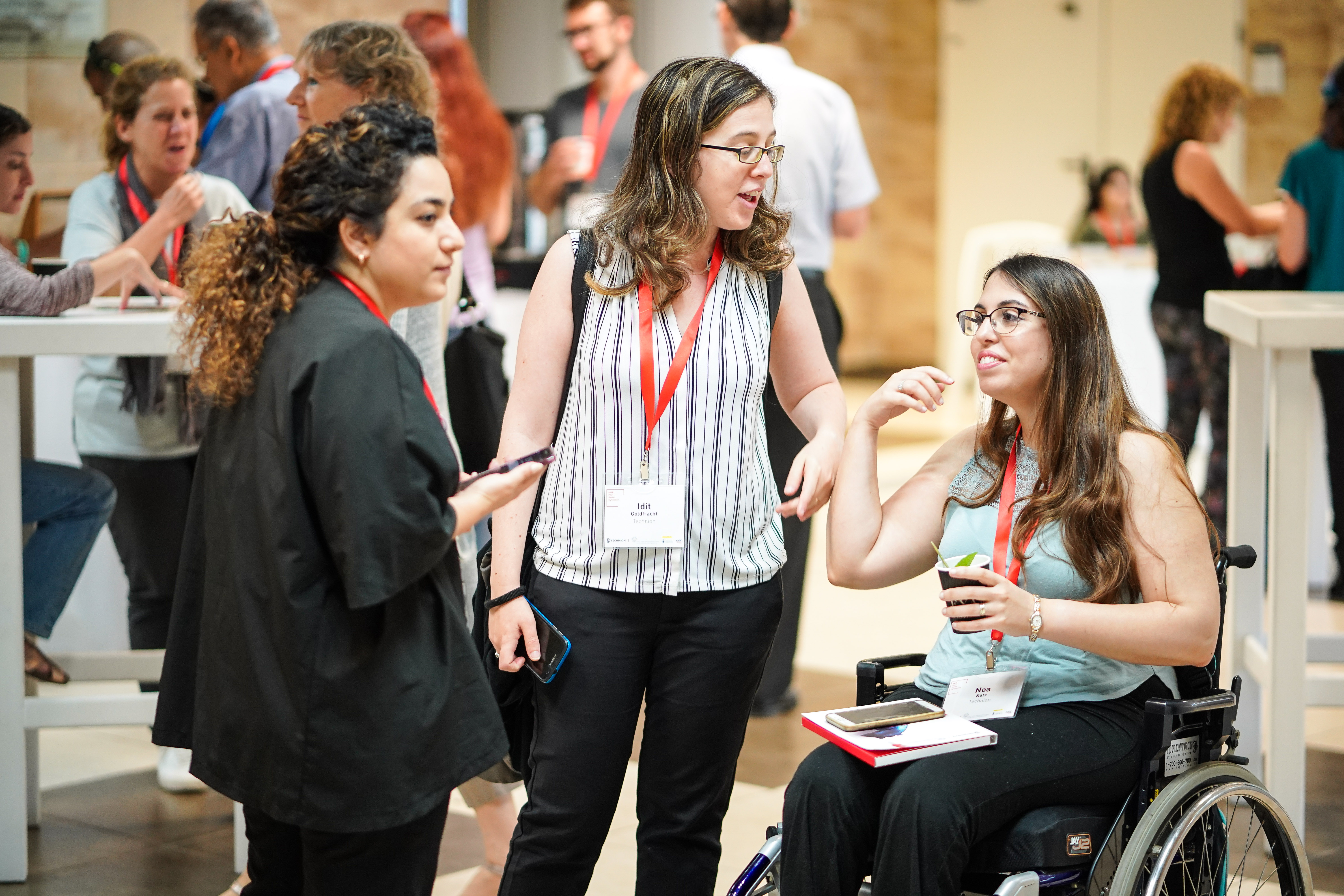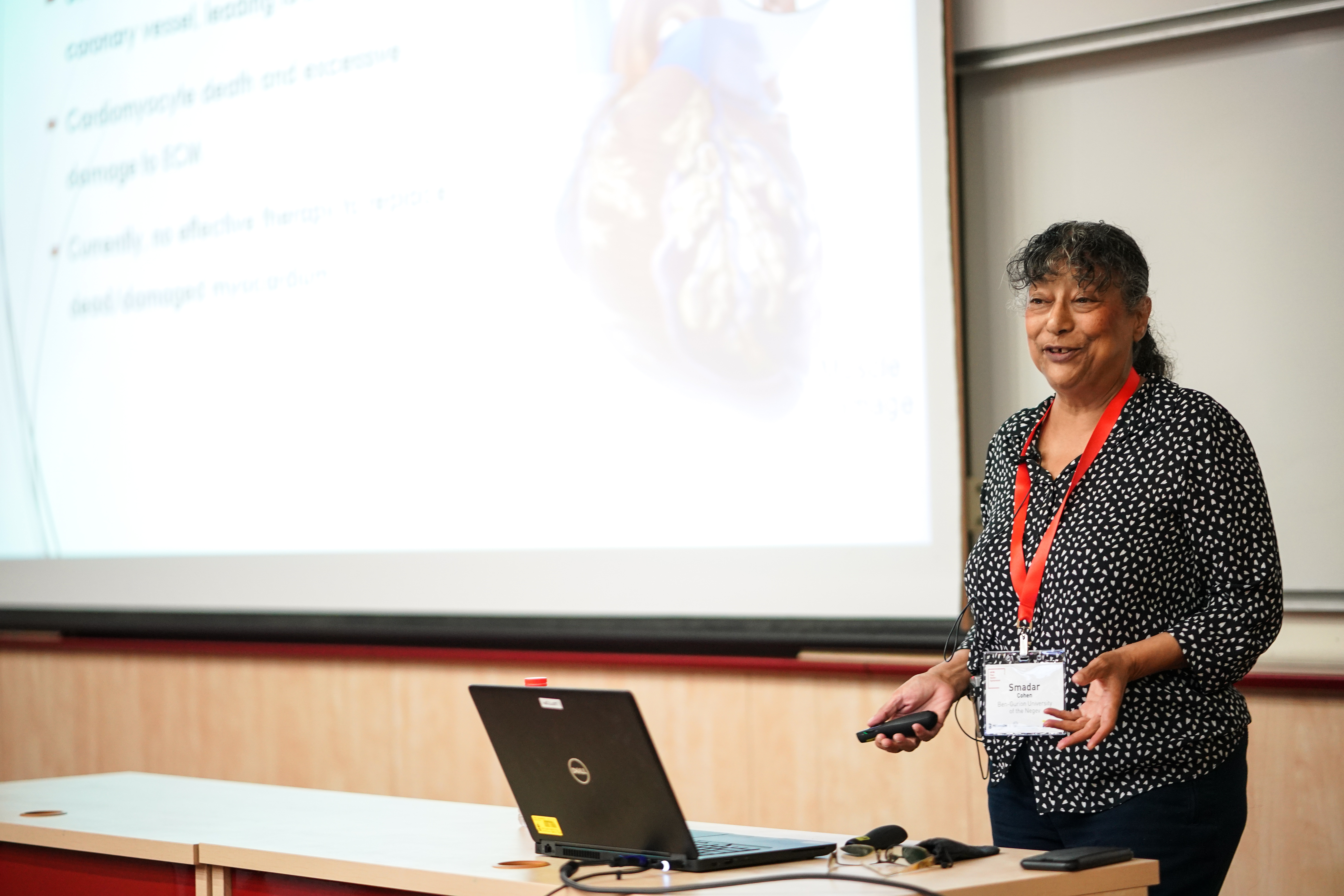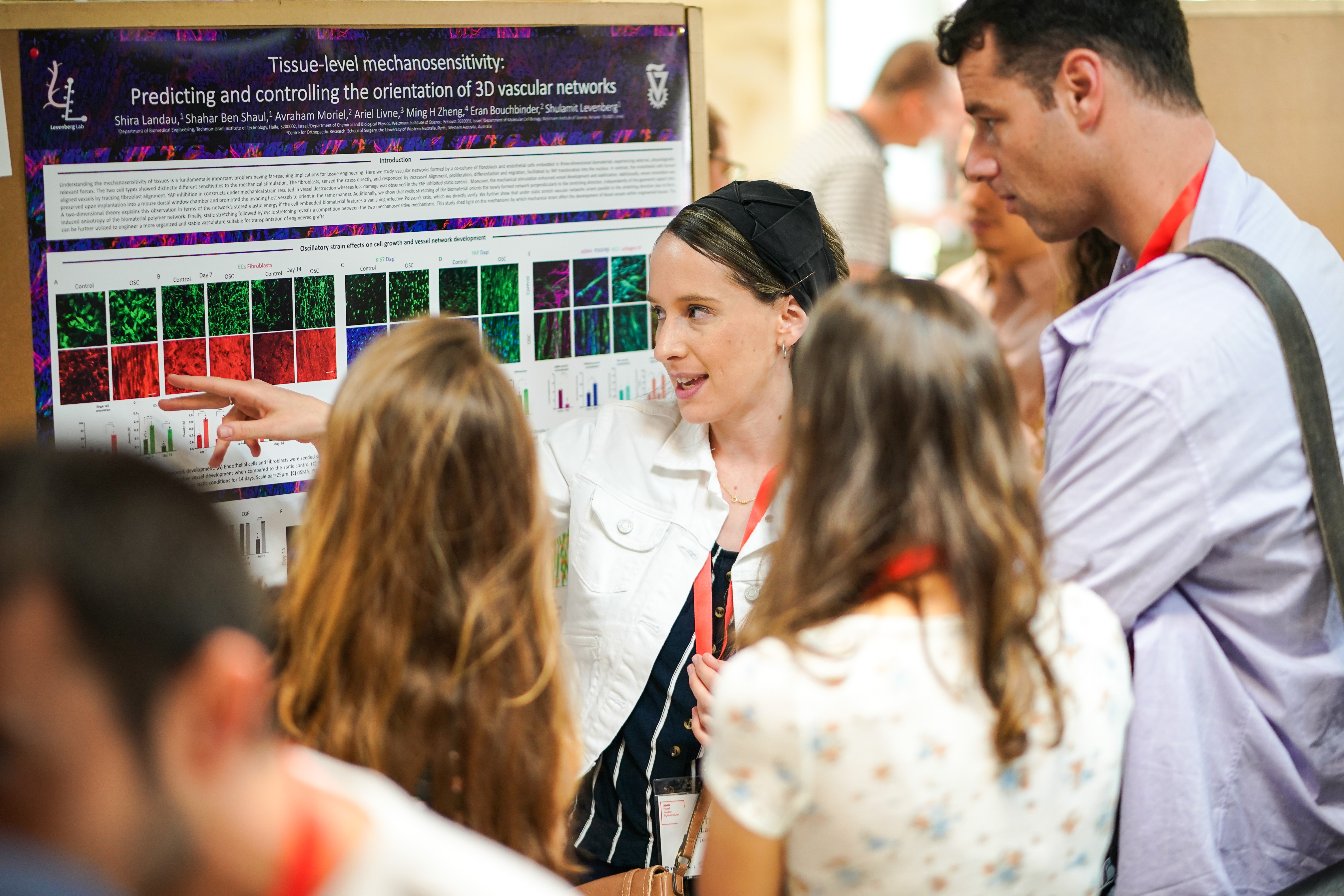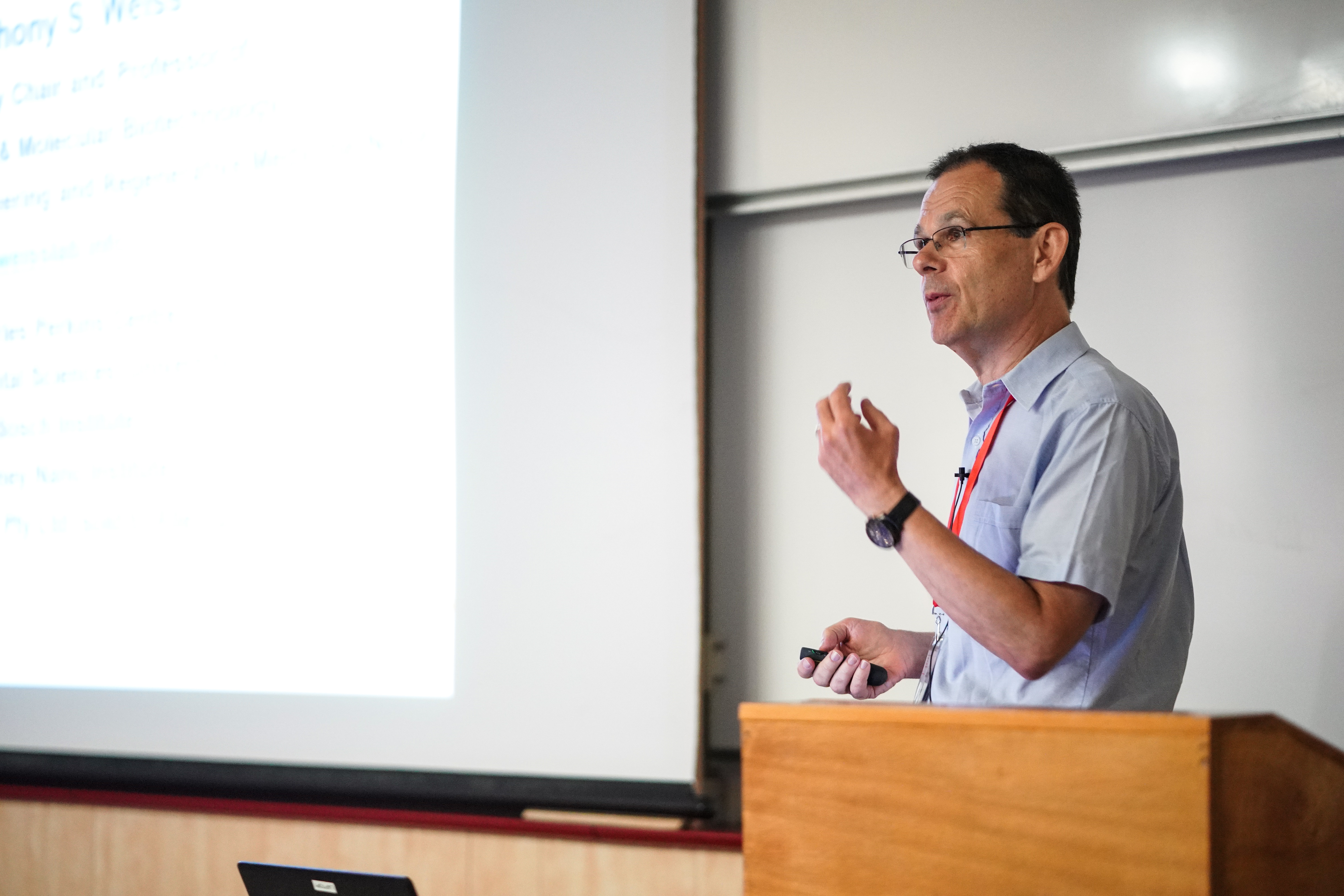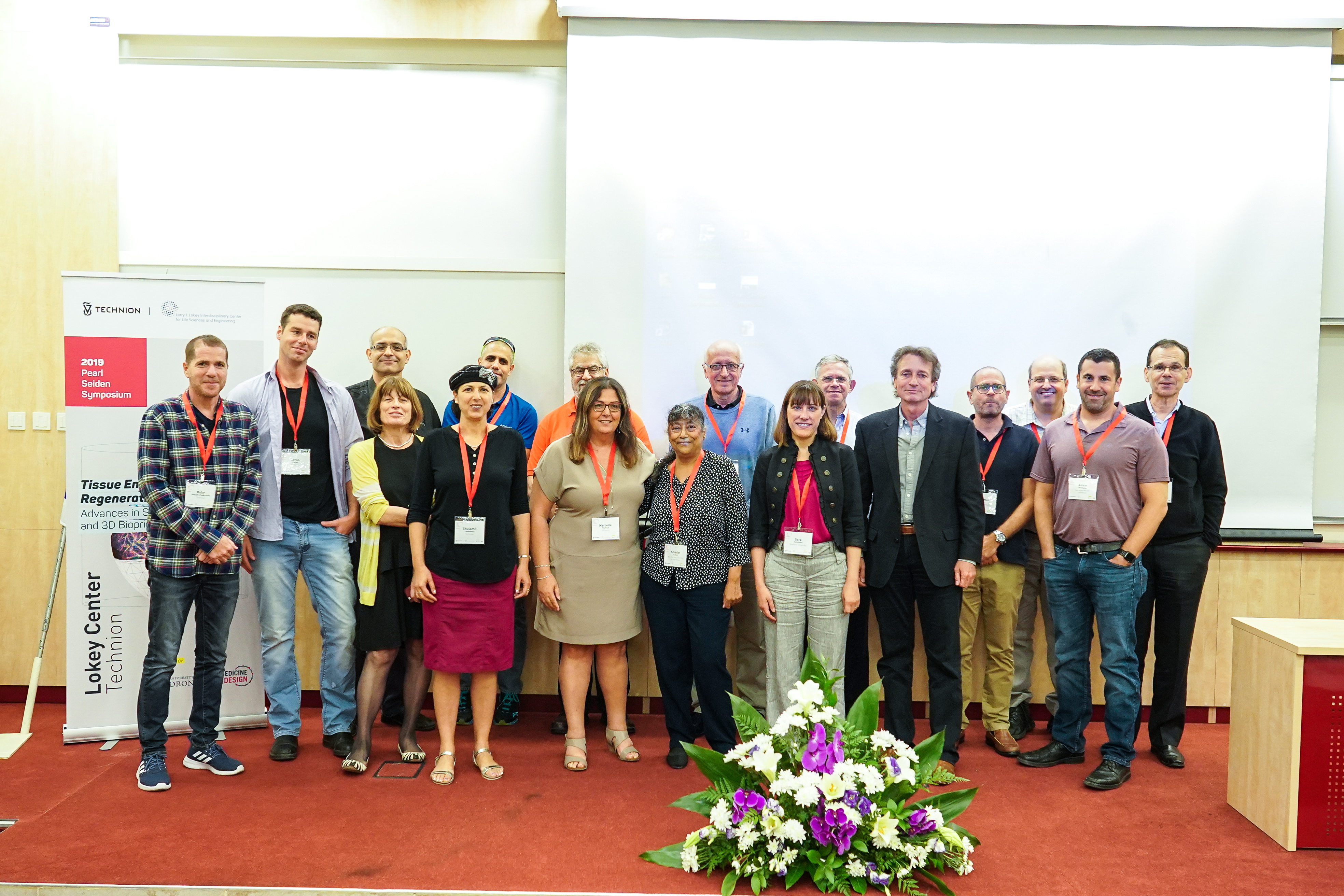Coming Soon
Lokey Center Conference September 2022
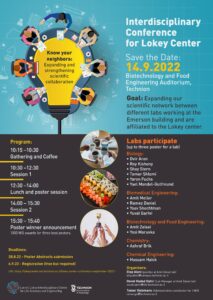
Previous events
Protein Purification by Chromatography Seminar
The 9th Annual Michigan-Israel Partnership (7-8, December 2020)
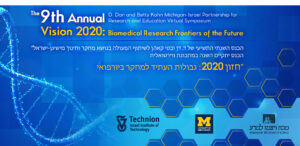
MED ABOUT DATA Hackaton (14-15, March 2019)
Pearl Seiden Symposium in Tissue Engineering and Regenerative Medicine (12-13, June 2019)
AMBER course
An advanced AMBER course took place in March 4-8, 2018. This was the second five-day course on Amber, a biomolecular simulation package. This course was leaded by three leading world experts in the MD field:
Prof. Adrian Roitberg (Department of Chemistry, University of Florida, USA),
Prof. Carlos Simmerling (Stony Brook University)
and Prof. Tom Kurtzman (Lehman College, City University of New York).
The workshop was consisted of a combination of lectures and hands-on tutorials that provided a comprehensive introduction to the field of molecular dynamics simulation and molecular simulation focusing on practical application of the AMBER MD software. The workshop consists of a series of short lectures followed by hands-on lab sessions that cover the use of AMBER and Amber Tools and the theory behind it.
Biomedical Big Data Science Conference
1ST International Conference on Biomedical Informatics .For two days in December 2017, researchers and students converged on the Technion to hear from the world’s foremost experts on one of the most dynamic and groundbreaking fields today: using deep learning and big data to improve healthcare.
iGEM Recap
Nine students from different backgrounds and faculties met, united by their drive to change the world. In iGEM, young scientists are called upon to create a multidisciplinary team, come up with an original idea, perform independent and high quality research, and in the end, present their findings to the scientific community in an international conference while competing with over 300 teams. In hindsight, it is difficult to summarize the tremendous journey our team has made. We discussed countless ideas, reviewed hundreds of papers, conducted dozens of experiments and spent many sleepless nights in the lab. We experienced heart wrenching failures and blissful moments of success, and after months of hard work, we finally flew to Boston for the final competition.
TCSB Workshop
The 1st BioStruct-X Mediterranean Maromolecular Crystallography Workshop Held in January 2016, at the Technion and hosted at the TCSB.
The three-day workshop combined both excellent theoretical lecture sessions and hands-on tutorial sessions. Distinguished guest instructors, who are well known and respected in their fields, delivered the lectures and hands-on tutorials: Zbigniew Dauter (Aragonne National Laboratory), Tom Terwilliger (Los Alamos National Laboratory), Randy Read (Cambridge Institute for Medical Research) and Karine Sparta (Helmholtz-Zentrum Berlin fur Materialien Energie).
The lectures addressed all stages of threedimensional structure determination of macromolecules via crystallographic methods. The workshop enabled the participants to learn about the latest advancements and developments in the field of structural biology and at the same time deepen and improve their understanding of fundamental protein crystallography. The workshop also served as a wonderful opportunity to showcase our exceptional infrastructure at the TCSB to the twenty-two participants from countries around the globe and many more attendees who joined the open morning lectures.
BKU Workshop: Next Generation Sequencing Data Analysis with R/Bioconductor
The bioinformatics knowledge unit (BKU) hosted in November 2016 a three days workshop on Next Generation Sequencing (NGS) Data Analysis using the R-programing language and the Bioconductor project. The aim of the workshop was introducing the participants with state of the art tools for NGS analysis. Dr. Haim Bar from the University of Connecticut and Dr. Martin Morgan from Roswell Park Cancer Institute and Director of the Bioconductor project, world leaders in statistics and NGS analysis, instructed the workshop. Twenty seven students, bioinformatics analysts and investigators from 10 institutions and companies in Israel attended the workshop. After introducing R programming principals Dr. Bar focused on descriptive statistics, statistical inference and supervised classification. Dr. Morgan presented the Bioconductor project, introduced the main R-packages to manipulate NGS data and focused on RNA sequencing workflow and annotation tools. Both lectures discussed concepts of reproducible science and efficient programming in R. Taken together the workshop was a great success. All participants were extremely content and expressed their wish to attend other similar as well as more advanced workshops in the future. The workshop was funded by the The Moshe Yanai Fund for the Promotion of International Conferences, Danyel Biotech and Ornat biochemical and lab equipment.
Umbrella Conference
In February 2015, we hosted the Umbrella Symposium – Cooperation, launched in 1983 by RWTH Aachen University, Forschungszentrum Jülich and the Technion, to support and strengthen the research alliance between Israel and Germany. The conference, marking 50 years since the establishment of diplomatic relations between Israel and Germany, was themed: “When Life Sciences and Engineering Converge.” Convergence is an approach to problem solving that cuts across disciplinary boundaries. It integrates knowledge, tools, and ways of thinking from life and health sciences, physical, mathematical, and computational sciences, engineering disciplines, and beyond, to form a comprehensive synthetic framework for tackling scientific and societal challenges that exist at the interfaces of multiple fields. This convergence has led to the emergence of new disciplines, such as: systems biology, synthetic biology, bioinformatics and computational biology, among others, which are a reflection of how convergence is a serious and increasingly important development in science. Recent reports discuss the concept of transdisciplinary research, a progression of the convergence paradigm, which describes how convergence research can be organized to deliver real benefit. 35 researchers participated in this symposium, and covered a wide range of issues at the heart of the convergence revolution in a fruitful and successful meeting. New collaborative efforts and exchange of ideas have already emerged from it.
The first Pearl Seiden International Meeting in Life Sciences
Aiming to facilitate convergence endeavors and to develop partnerships, synergies and collaborations with universities across the world, we hosted The First Pearl Seiden International Meeting in Life Sciences, entitled: “From Synthetic Biology to Discovery and Applications,” during December, 2015. The meeting was held at the Department of Biotechnology and Food Engineering of the Technion, during the holiday of Hanukkah (Dec. 9-10, 2015). The meeting featured 18 speakers: 10 international speakers from the U.S. and Europe and 8 local speakers from the Technion, the Weizmann Institute, Tel Aviv University, and the Hebrew University, Jerusalem. Attended by 150 researchers, students and professionals from the local private sector and worldwide professionals, the conference was truly an international gathering. The meeting was the first of its kind, bringing together both synthetic and system biologists, to discuss the latest developments in their fields, and to jointly discuss how both fields can move forward. This framework was enthusiastically embraced by our invited speakers, who gladly attended the meeting, despite the current political situation. In fact, we were successful in bringing senior U.S. scientists including Prof. Adam Arkin and Prof. Rama Ranganathan, internationally recognized for their many contributions to this field and others, to Israel for the first time. The meeting was a great success as it combined the presentation of top-notch and exhilarating science, while maintaining a friendly and collaborative atmosphere. This encouraged students and researchers to discuss their own research with the invited speakers. The two-day meeting was organized meticulously by the administrative team who undoubtedly contributed to the satisfaction of the participants.

